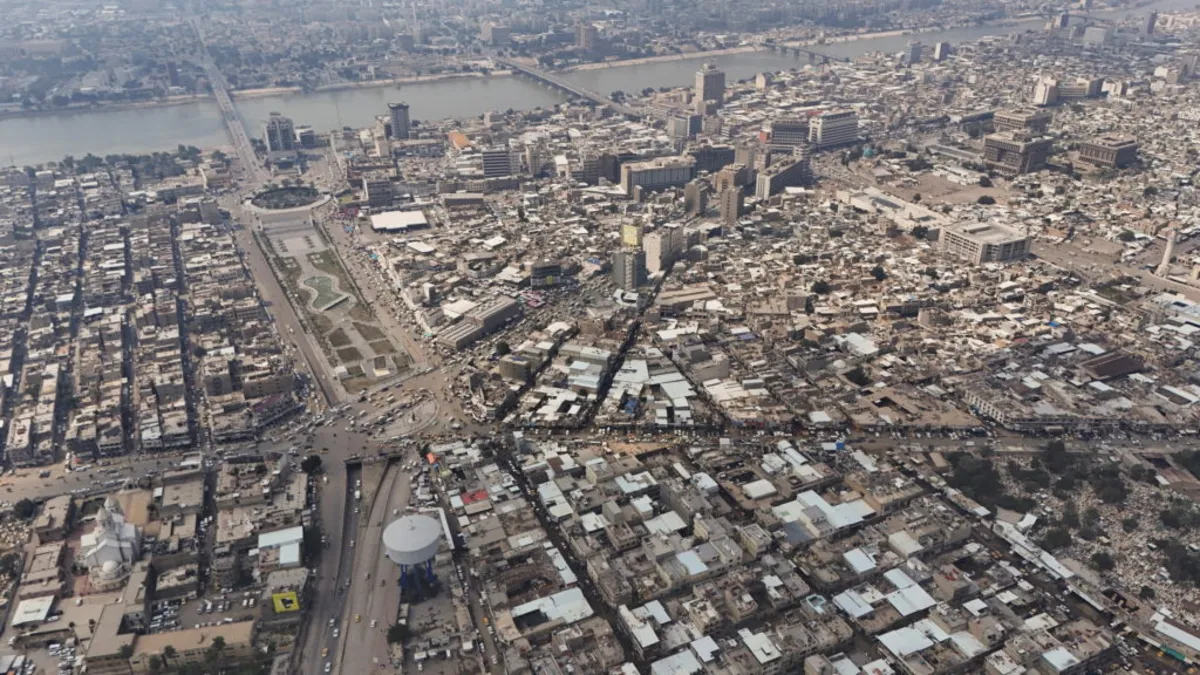
WASHINGTON (AP) — The United States is currently drawing down its presence of nonessential personnel in the Middle East in response to escalating regional tensions, as confirmed by both the State Department and military officials on Wednesday. This strategic decision aims to ensure the safety of Americans abroad amid growing unrest in the area.
The State Department has issued an order for the departure of all nonessential personnel from the U.S. Embassy in Baghdad. This directive follows a thorough review of the situation and reflects a commitment to safeguarding American lives, both domestically and internationally. Although the embassy had already been operating with limited staffing, this latest order will not significantly impact the number of personnel present.
In addition to Baghdad, the State Department is also granting authorization for the departure of nonessential personnel and their families from Bahrain and Kuwait. This provides these individuals with the option to leave if they choose, emphasizing the U.S. government's proactive approach to personnel safety in the region. U.S. Central Command, led by Defense Secretary Pete Hegseth, has also approved the voluntary departure of military dependents from various locations in the Middle East.
U.S. Central Command has been actively monitoring the escalating tensions in the Middle East. White House spokeswoman Anna Kelly confirmed these measures, explaining that the State Department routinely assesses the safety of American personnel abroad. This decision stems from a recent review of the situation in the region.
Amid these developments, tensions have been heightened due to stalled negotiations between the U.S. and Iran over the latter's rapidly advancing nuclear program. These talks aim to curtail Iran’s nuclear ambitions in exchange for the easing of stringent economic sanctions imposed by the U.S. Iran maintains that its nuclear program is intended for peaceful purposes.
The next round of negotiations was tentatively scheduled for the upcoming weekend in Oman. However, U.S. officials, who spoke on the condition of anonymity, indicated that it is becoming increasingly unlikely that these discussions will proceed as planned. Former President Donald Trump expressed skepticism about the prospects of reaching a deal, stating that he is "getting more and more less confident" about the negotiations.
Iran's mission to the United Nations responded to U.S. threats by asserting that "threats of overwhelming force won’t change the facts." They reiterated that Iran is not pursuing a nuclear weapon and criticized U.S. militarism for exacerbating instability in the region. Iranian Defense Minister Gen. Aziz Nasirzadeh expressed hope for positive outcomes from negotiations but warned that Iran is prepared to respond decisively if conflict arises.
In related developments, the Board of Governors at the International Atomic Energy Agency (IAEA) may soon vote on a measure to censure Iran. Such a move could pave the way for the re-imposition of United Nations sanctions against Tehran under the framework of the 2015 nuclear deal, from which Trump withdrew during his presidency.
Earlier on Wednesday, a statement from the United Kingdom Maritime Trade Operations center—a Mideast-based initiative overseen by the British navy—issued a warning regarding increased tensions that could escalate military activity affecting maritime operations. Mariners were advised to exercise caution in the Persian Gulf, the Gulf of Oman, and the Strait of Hormuz, crucial waterways that have previously been the site of Iranian ship seizures and attacks.
As the situation continues to evolve, the U.S. remains vigilant, prioritizing the safety of its personnel and monitoring the complex dynamics of the Middle East.